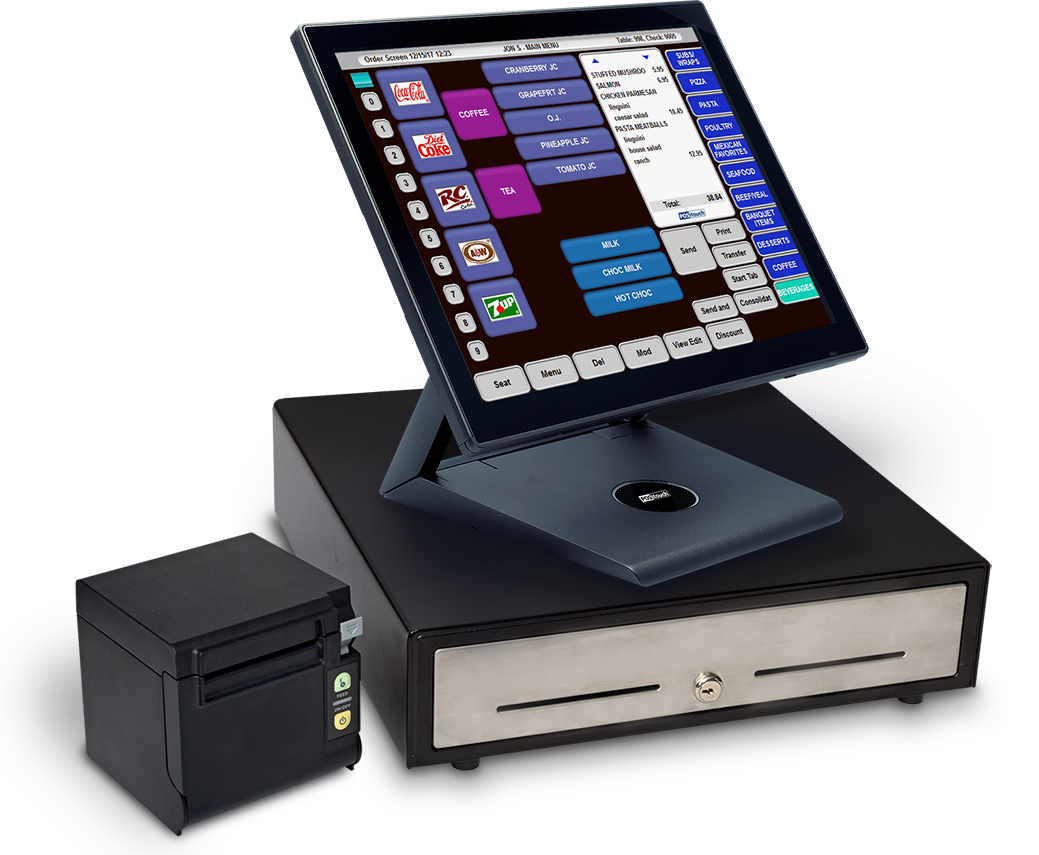POS Systems and Data Analytics: Unlocking the Power of Your Sales Data

In the current rapidly changing business environment, possessing a trustworthy point of sale (POS) system is crucial for achievement. Whether you are managing a bustling restaurant, a retail shop, or an e-commerce store, the right POS system can enhance your operations, boost customer experiences, and offer critical data insights that can steer your business decisions. As evolves, so do the capabilities of modern POS systems, making it crucial for businesses of all sizes to stay informed about their options.
In this piece will examine the several features of POS systems, from their basic functions to sophisticated features like data analytics. We'll delve into what a POS system really is, how it has changed over the years, and the specific benefits it brings to various industries. By understanding the full potential of your sales data and the technology that supports it, you can unlock new prospects for growth and greater efficiency in your business.
Comprehending POS Systems
A Point of Sale system, or Point of Sale system, is an essential tool for modern businesses that facilitates exchanges between customers and businesses. It is not just a mere cash register; it combines hardware and software to simplify the sales process, manage inventory, and provide critical insights into customer behavior and sales performance. A standard POS system includes a register, a computer or tablet, a receipt printer, a barcode scanner, and a card reader, functioning collectively to enhance operational efficiency.
The development of POS systems has been significant over the years. Originally, Restaurant Point of Sales Systems used traditional cash registers that simply recorded transactions. Nonetheless, with advancements in technology, contemporary POS systems now offer cloud-based solutions that allow businesses to access data off-site and in real-time. This shift enables enhanced flexibility and scalability, meaning businesses can modify their operations as needed without being tied to a physical location. Additionally, features such as mobile compatibility and improved security measures have transformed how transactions are conducted.
Today, businesses across different industries utilize POS systems to enhance transaction speed, accuracy, and customer satisfaction. From restaurants to retail stores, sector-specific solutions have arisen to meet unique needs, such as table management in hospitality or inventory tracking in retail. The ability to integrate POS systems with other business tools, such as accounting software and customer relationship management (CRM) systems, further enhances their functionality and effectiveness, making them a key element of successful commercial operations.
Selecting the Best POS Solution
As you choosing a POS solution for the company, it's important to determine your specific needs and operational requirements. Consider aspects such as the size of the company, the industry you operate in, and the capabilities that are critical for transactions and client interactions. Assess whether you require a system that can handle inventory management, customer relationship management, or advanced analytics to aid in decision-making. Understanding these needs will assist limit your options greatly.
Moreover, evaluate the budget you have set for your POS solution investment. POS solutions can vary widely in terms of cost, ranging from simple setups for small companies to full-scale solutions appropriate for bigger enterprises. Be sure to consider any recurring costs, such as transaction charges, subscription packages, and maintenance. It’s prudent to opt for a system that not just fits the current budget but also enables scalability as the business expands.
In conclusion, don’t dismiss the significance of integration capabilities. A good POS solution should seamlessly integrate with additional software you are utilizing, such as accounting software, e-commerce platforms, and inventory management systems. This compatibility will enhance efficiency and streamline operations, allowing you to concentrate on serving the customers. It is important to research vendors thoroughly, read customer reviews, and maybe even ask for demos to confirm the solution you choose fits well with the overall company goals.
Enhancing Commercial Processes with Point of Sale
A modern POS system significantly enhances business operations by simplifying transaction processes and boosting overall efficiency. With capabilities such as instant inventory tracking and automated sales reporting, businesses can cut errors and fine-tune stock levels. This efficiency not only saves time for employees but also allows them to concentrate on providing superb customer service, which is essential in maintaining customer loyalty and satisfaction.
Furthermore, the integration of cloud-based solutions facilitates access to sales data from anywhere, empowering business owners to make quick decisions based on up-to-date information. By capitalizing on analytics capabilities, businesses can recognize trends and understand customer preferences, leading to more thoughtful marketing strategies and promotions. This data-driven approach ultimately aids strategic planning and fosters growth by aligning business efforts with customer demand.
In addition, employee productivity can be notably enhanced with a easy-to-use POS system. Intuitive interfaces and mobile POS options enable staff to process transactions swiftly and efficiently, leading to lessened wait times for customers. Training staff becomes simpler when systems are straightforward, and the dual benefit of heightened employee satisfaction and better customer experiences creates a positive feedback loop that strengthens the overall operation of the business.

